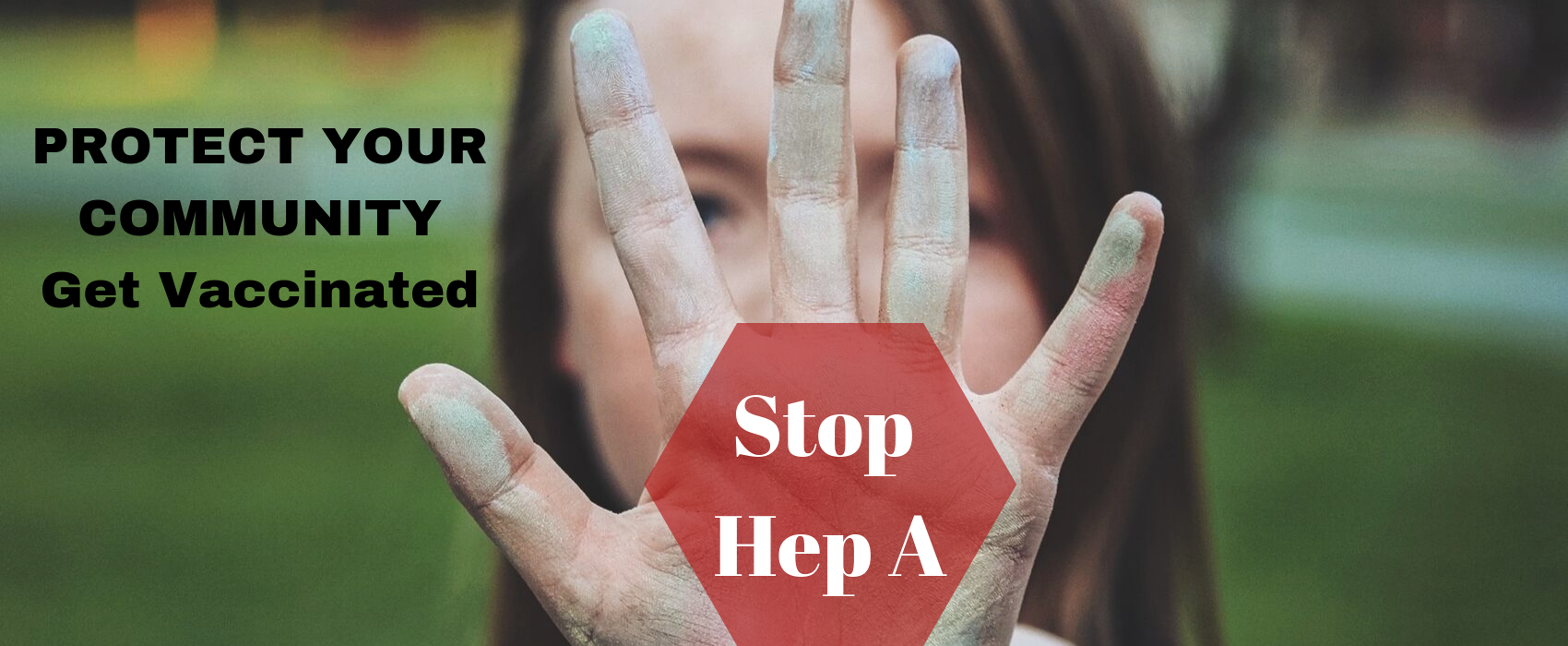During the summer months when people are out and about more frequently and attending events like carnivals and festivals, it is important to remember to wash your hands and take other sanitary and necessary precautions to prevent Hepatitis A.
Hepatitis A is a serious, highly contagious liver disease caused by the hepatitis A virus (HAV). HAV is found in the feces (poop) of people with hepatitis A. You can get hepatitis A by eating contaminated food or water, during sex, or just by living with an infected person. Illness can appear 15-50 days after exposure and you can be sick for several weeks. In some cases, people can die. Although not all people infected with hepatitis A experience illness, symptoms can include:
- nausea and vomiting
- belly pain
- feeling tired
- fever
- loss of appetite
- yellowing of the skin and eyes
- dark urine
- pale-colored feces (poop)
- joint pain
There are steps you can take to reduce the risk of Hepatitis A transmission. Hepatitis A is a vaccine-preventable illness. While the hepatitis A vaccine is recommended as a part of the routine childhood vaccination schedule, most adults have not been vaccinated and may be susceptible to the hepatitis A virus. The best way to reduce the risk of getting hepatitis A is to get vaccinated with two doses of Hepatitis A vaccine. It is also recommended to wash your hands after going to the bathroom and before preparing meals for yourself and others. Use your own towels, toothbrushes, and eating utensils. Do not have sex with someone who has HAV infection or share food, drinks, or smokes with other people.
What can the public do to protect themselves and their communities?
- Get vaccinated against hepatitis A
- Wash hands after using the restroom and before eating or preparing meals for yourself or others
- Use your own towels, toothbrushes, and eating utensils
- Do not have sex with someone who has HAV infection
- Do not share food, drinks, drugs, or smokes with other people
- If you think you may have hepatitis A, see your medical provider
- If you have hepatitis A, please cooperate with your local public health to help protect others
Vaccination Information
Hepatitis A can be prevented with a safe and effective vaccine. Stop the spread of this infection.
Who Should Get the HAV Vaccine?
- Persons who are homeless.
- Persons who are incarcerated.
- Persons who use injection and non-injection illegal drugs.
- Persons who work with the high risk populations listed above.
- Persons who have close contact, care for, or live with someone who has HAV.
- Persons who have sexual activities with someone who has HAV.
- Men who have sex with men.
- Travelers to countries with high or medium rates of HAV.
- Persons with chronic liver disease, such as cirrhosis, hepatitis B, or hepatitis C.*
- Persons with clotting factor disorders.
*Note: individuals with chronic liver disease (e.g., cirrhosis and hepatitis C) may not be at increased risk of getting HAV infections but are at increased risk of having poor outcomes if they are infected with HAV.
Quick Links
General Information/Information for Individuals and Families
About Hepatitis A (DHD#10)
Get Yourself Protected (DHD#10/MDHHS)
Hepatitis A General Fact Sheet (CDC)
Hepatitis A – What You Need to Know (MDHHS)
Protect Yourself from Hep A (MDHHS/DHD#10)
Help Stop Spread of Hepatitis A (MDHHS)
Hepatitis A Disinfection Tip Sheet (MDHHS/MDARD
Vaccination Information
Community Partners
Get Yourself Protected (DHD#10/MDHHS)
Hep A Is Spreading – Half Sheet Tear Offs (DHD#10/MDHHS)
Poster – Germs are Everywhere
Poster – Are You At Risk?
Poster – Hep A is Spreading-Are You Next?
Flyer – Protect Yourself from Hep A (MDHHS/DHD#10)
Manufacturers of Hepatitis A Vaccine:


